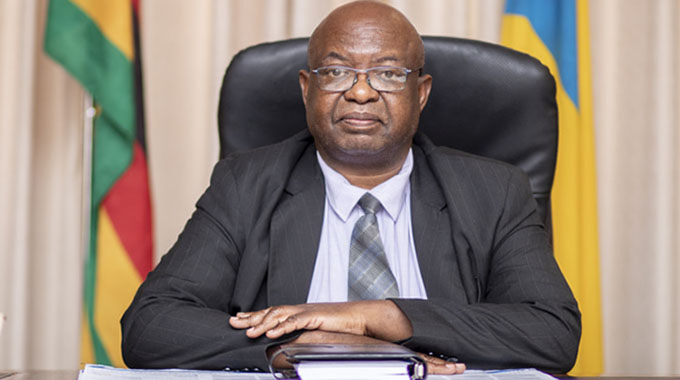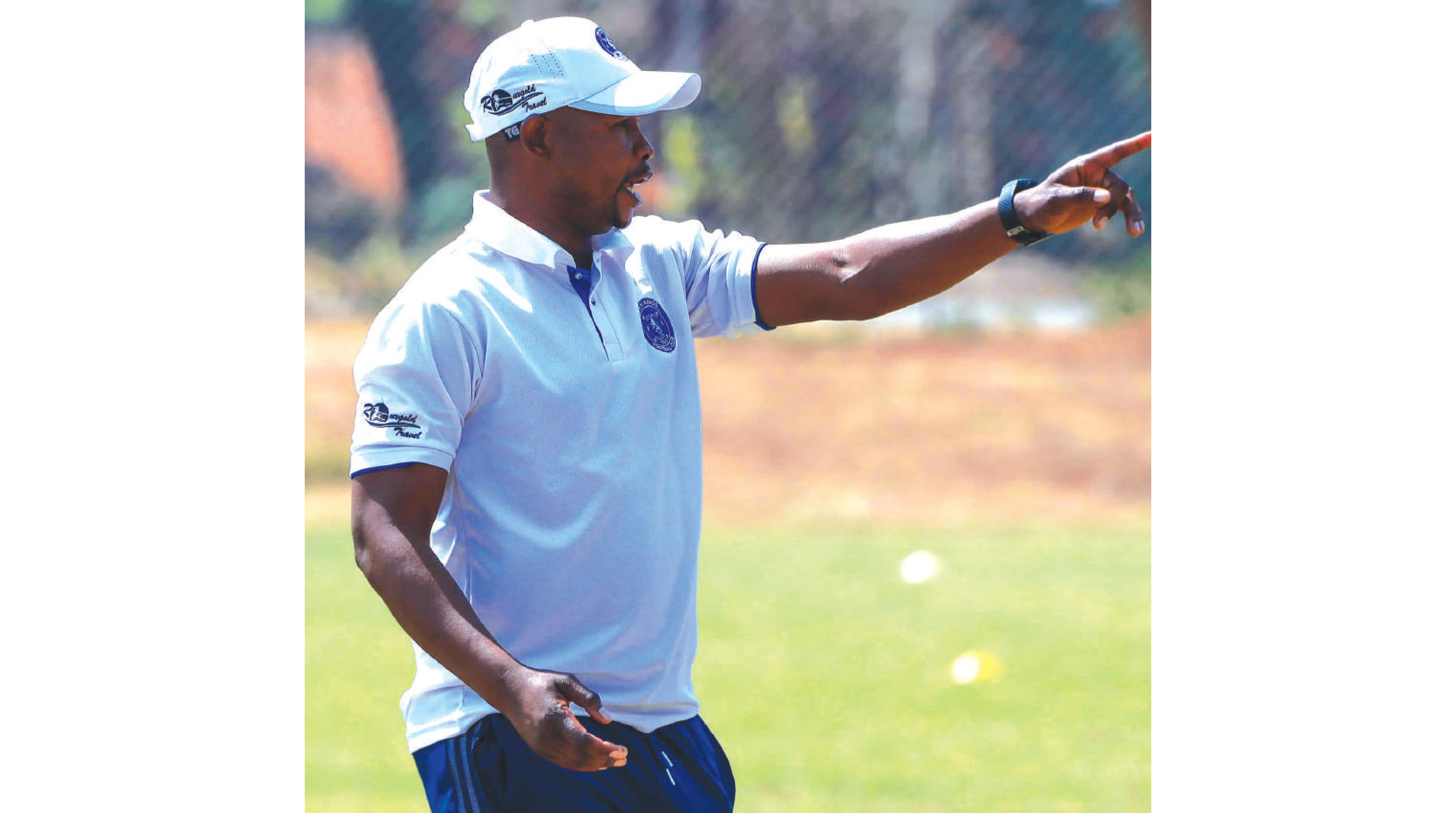No other language outspeaks the mother tongue

Elliot Ziwira Senior Writer
For over two decades now, Zimbabwe has been joining the rest of the globe in celebrating International Mother Language Day on February 21.
The day was proclaimed by the General Conference of the United Nations Educational, Scientific and Cultural Organisation (UNESCO) in November 1999. The proclamation was embraced by the UN General Assembly in its resolution A/RES/56/262 of 2002.
This year’s event was commemorated under the theme, “Multilingual education is a pillar of inter-generational learning”.
To mark the day, the Midlands State University National Language Institute and UNESCO jointly hosted the 2024 National Languages Indaba in Harare recently.
The occasion was graced by the Speaker of the National Assembly, Advocate Jacob Mudenda, Higher and Tertiary Education, Innovation, Science and Technology Development Permanent Secretary, Professor Fanuel Tagwira, Midlands State University Vice Chancellor, Professor Victor Muzvidziwa, and Zimbabwe Media Commission Chairperson, Professor Ruby Magosvongwe, among other luminaries.
The celebration came at a time when many languages are dying due to technological advancements and an increasingly globalised village, with at least 43 percent of the 6 000 tongues spoken across the world facing extinction.
Due to colonial education systems globally, people rely mainly on a few hundred languages, which disadvantage 40 percent of the world’s population that neither speaks nor understands them.
The Information Revolution has further threatened thousands of languages as the digital universe only makes use of less than a hundred.
Notably, the MSU-UNESCO organised Indaba was aimed at developing cultural appreciation based on Zimbabwe’s linguistic diversity.
As Midlands State University Vice Chancellor, Prof Muzvidziwa, aptly said in marking the occasion, indigenous languages are crucial in shaping shared identities and uniting the people of Zimbabwe.
The Indaba/Dare offered a platform for dialoguing, exploring, and collaborating in celebration of the beauty of mother tongues and reaffirming the commitment to linguistic empowerment. Stakeholders converged to tap into each other’s expertise to find ways to develop, empower, digitise, and intellectualise these tongues for the greater good.
Participants also sought to set up specialised teams for the development of orthography, lexicography, and language datasets — spell checkers, in addition to other applications for digital animation of heritage, culture, and indigenous games.
Thus, the unifying aspect of language and its role in the preservation of heritage as enshrined in a people’s culture cannot be overemphasised.
“At MSU we recognise the pivotal role that indigenous languages play in preserving our Zimbabwean heritage, fostering understanding, and promoting inclusivity,” Prof Muzvidziwa highlighted.
He called on participants, and, indeed, all Zimbabweans, to embrace multiculturalism and cultural differences emanating from the country’s linguistic multiplicity.
“Together, let us embrace the power of our indigenous languages and overlook the negative influence of multilingualism to inspire change, and create a more harmonious nation.
“Language is not merely a means of communication; it is the architect of our cultural heritage, a bridge that connects individuals and language communities, and a conduit towards national understanding,” Prof Muzvidziwa emphasised.
Indeed, as the prominent academic underscored, language goes beyond being a communicative tool as it carries a people’s culture. And, culture is the backbone of societal aspirations.
Hence, loss of language equates to loss of culture, and ultimately loss of confidence, as everything that societies should be cherishing is reduced to “a quintessence of evil” (Fanon, 1967).
The subtle nature of colonialism and its attendant efforts to destroy cultural ethos through the destruction of shrines, and all that made colonised people tick, created individuals who hated themselves more than they did their colonisers.
Africans lost their languages, which they were made to believe to be the source of their backwardness. In essence, therefore, they lost their identity, self-pride, and dignity. Therefore, the MSU, through its National Language Institute headed by Dr. William Zivenge, who is the acting director, is playing a pivotal role in decolonising Zimbabweans and making them understand the importance of the mother tongue in self-expression that goes beyond the individual.
“Through our indigenous languages, we express our thoughts, and feelings, share experiences, and build long-lasting relationships. It is the medium through which knowledge is imparted to one another, ideas are passed from one generation to another, and innovation flourishes to fulfil the demands of Education 5.0,” Prof Muzvidziwa underlined.
The gagging of the mother tongue, therefore, leads to the loss of indigenous knowledge systems, which are an inheritance. As more and more people migrate from their countries of birth to the Diaspora, the routing is complete.
Research shows that a language dies every fortnight, and takes with it a whole cultural and intellectual heritage. Such a loss cannot be ignored. Naturally, when language suffers, culture becomes the biggest loser. Some languages and cultures may never be redeemed as they collapse under the guise of industrialisation and progress.
For Zimbabweans to live in harmony, there is a greater need for linguistic diversity that puts more emphasis on multi-cultural education through the promotion of mother tongues. And, it is this that the MSU’s National Language Institute is spearheading.
To enhance the country’s heritage-based Education 5.0, which seeks to develop the complete individual capable of going beyond bookish learning in an increasingly digitised economy, the institute is establishing language, culture, and heritage incubation hubs in communities nationwide.
Requisite learning materials are being developed as well, while community language research and infrastructure for the rejuvenation and digitalisation of mother tongues are being set up.
Established in 2018, the MSU’s National Language Institute has translated crucial Government documents, like the National Development Strategy 1 (NDS 1), the Constitution of Zimbabwe, and the Highway Code, among others, to local languages.
The Zimbabwean education system emphasises the use of mother tongues for instruction to learners from Grade One up to Grade Four.
By recognising the existence of 16 official languages (Ndebele, Shona, Tonga, Chewa, Nambya, Shangani, Venda, and sign language among them), the country’s Constitution is apt in preserving indigenous languages.
Citing Ethnologue (2015), Higher and Tertiary Education, Innovation, Science and Technology Development, Permanent Secretary, Professor Tagwira, who was the guest of honour at the Indaba, stressed the need for the preservation of indigenous languages as provided for by the Constitution of Zimbabwe, saying they are “indispensable cogs” in the country’s machinery for “socio-economic turnaround”.
“It is an indisputable fact that the most defining feature of humanity is language. Besides its role of positioning humanity above all other creatures, language has a critical role in the preservation of idiosyncratic cultural knowledge, history, and geography,” said Prof Tagwira.
He emphasised that languages are warehouses of cultural and indigenous intellect, and a “means of expressing one-self, thought processes and ingenuities”.
Prof Tagwira made a critical observation that without language a community loses its identity. Hence, the marginalisation of particular mother tongues “disorients speakers of those languages”.
According to the sociologist Emile Durkheim, culture is the cumulative deposit of knowledge, experience, beliefs, values, attitudes, meanings, hierarchies, religion, notions of time, spatial relations, concepts of the universe, material objects and possessions acquired by a group of people in the course of generations through individual and group striving.
All that can only be expressed through language, with each community, nation, region, gender, social, and corporate inclination taken on board.
Cultural beliefs expressed in African folklore, riddles, idioms, and proverbs can only be appropriately enunciated through indigenous languages. Language is a powerful vehicle in the conveyance of a people’s mores in their original form.
Foreign languages fall short in ferrying a people’s mores and values from one generation to another through folklore. They falter in articulating the gist of realities prevailing in communities and societies at any given time.
Colonialism and hegemony brought linguistic challenges to the African landscape.
“Despite this important role of language, the colonial experience in Zimbabwe witnessed the enactment of policies and laws that marginalised most of our indigenous languages,” Prof Tagwira noted.
Since the colonial experience divested Africans by making them hate themselves through loss of language in both formal and informal settings, reverting to mother tongues, is both empowering and liberating for the oppressed peoples of Africa.
An education system that gives prominence to foreign languages at the expense of indigenous ones encumbers development, social cohesion, and linguistic diversity. In a way, such a system is more destructive than constructive. A system of education that uses indigenous languages for purposes of oppression and agenda-setting, is equally destructive.
It is commendable that the Zimbabwe Media Commission and other institutions are mandated to encourage the use and development of local languages.
In her presentation at the languages Indaba, Zimbabwe Media Commission Chairperson, Professor Ruby Magosvongwe, said the community radio concept embraced by the Government, through the Ministry of Information, Publicity and Broadcasting Services and the Broadcasting Authority of Zimbabwe (BAZ), was key to the preservation of indigenous languages.
She pointed out that radio, as a component of the broadcasting media, is part and parcel of the cultural industry the world over, since, like all media-built perceptions, it promotes certain moral values.








Comments